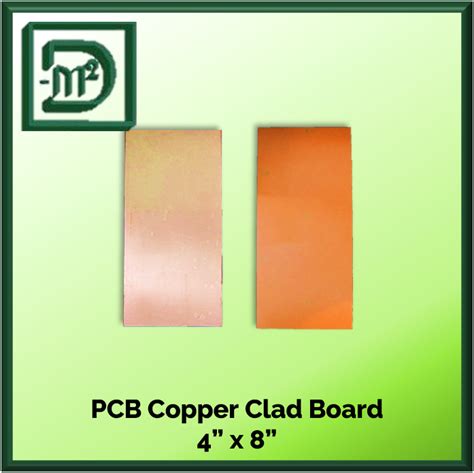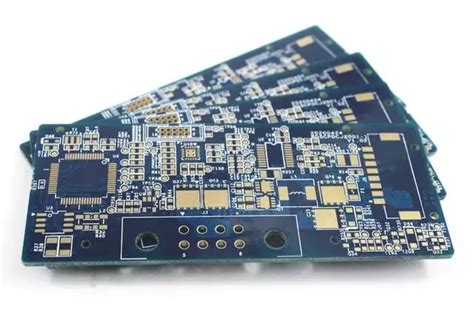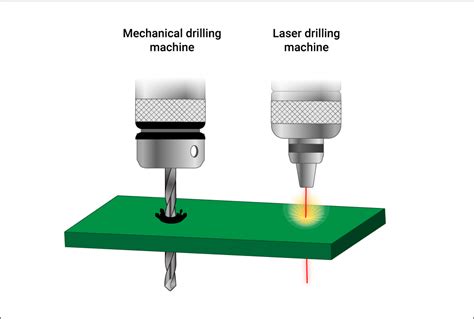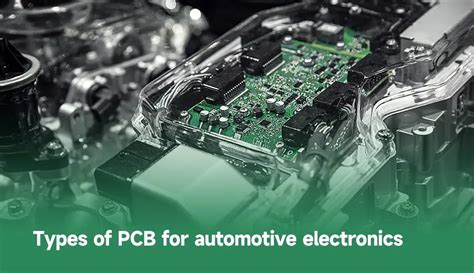Choosing the Best Copper Clad Board Manufacturer for Your Needs
Key Takeaways
Selecting the right copper clad board manufacturer is a critical component in ensuring the success of your project, especially when it comes to pcb assembly and pcba requirements. Understanding the various types and applications of copper clad boards can help clarify your specific needs. Key factors to consider include the manufacturer’s reputation for quality, reliability, and cost-effectiveness. Look for manufacturers that adhere to stringent quality standards in their production processes, as this directly impacts the performance and durability of your final product. Additionally, assessing customer reviews and testimonials can provide insight into the reliability of a manufacturer’s output. Ensure that the manufacturer has the necessary certifications and complies with industry standards to guarantee that you receive a product that meets all technical requirements. Customization options can also play a significant role; being able to tailor solutions specifically for your design and engineering needs enhances overall project outcomes. Ultimately, making an informed decision based on these factors will lead to a successful partnership that supports your project goals, particularly in the realms of pcb assembly and printed circuit board applications.
Understanding Copper Clad Boards: Types and Applications
Copper clad boards are an essential component in the world of electronics, serving as the base layer for printed circuit boards (PCBs). These boards are typically made by laminating a layer of copper onto a non-conductive substrate, which can include materials like fiberglass or epoxy resin. The most common types of copper clad boards include single-sided, double-sided, and multilayer boards, each designed for specific applications within the pcb assembly process. Single-sided boards are often used in simpler circuits, while double-sided boards allow for more complex designs by providing conductive pathways on both sides. Multilayer boards take it a step further, enabling high-density interconnects crucial for sophisticated electronic devices.
Applications for these boards are diverse, ranging from consumer electronics to industrial machinery and aerospace equipment. For instance, in the realm of electronic devices, such as smartphones or laptops, double-sided and multilayer copper clad boards are frequently utilized due to their capacity to accommodate small components and intricate wiring layouts. In contrast, single-sided versions might find their place in simpler appliances or tools where functionality does not demand extensive connections.
When embarking on your next project, understanding these various types helps in determining which material configuration will best address the specific requirements of your design. With options like pcba becoming increasingly prominent in production processes, selecting the right copper clad board manufacturer is vital to ensure that your final product meets both quality standards and operational durability.
Key Factors to Consider When Choosing a Manufacturer
When selecting a copper clad board manufacturer, several key factors come into play that can significantly impact the success of your project. Understanding quality is essential; therefore, you should look for manufacturers that adhere to industry standards and certifications. This ensures that the pcb assembly produced will be robust and reliable. Quality assurance processes, like continuous testing, are indicators of a reputable manufacturer.
Next, consider the cost-effectiveness of your options. While it may be tempting to choose the least expensive option, it is crucial to assess whether the cost aligns with the durability and functionality required for your specific applications. A balance of price and quality will yield better results in the long run.
Moreover, reliability should not be overlooked. Investigate customer reviews and testimonials to gauge past performance. Reliable manufacturers often have a history of timely deliveries and responsive customer service, both important for maintaining workflow in your project.
Lastly, explore any customization options offered. Many manufacturers are willing to tailor their products to meet your unique specifications, which can enhance performance in specialized applications.
“A well-chosen manufacturer can be a valuable partner in navigating market challenges.”
Below is a summary table highlighting these key factors:
| Factor | Importance |
|---|---|
| Quality | Ensures product durability |
| Cost-Effectiveness | Balances price with performance |
| Reliability | Indicates manufacturer’s track record |
| Customization Options | Enhances adaptability for specialized needs |
By thoroughly evaluating these aspects when choosing a copper clad board manufacturer, you can make an informed decision that supports not only your current project needs but also potential future partnerships in pcba production.
Evaluating Quality Standards in Copper Clad Board Production
When selecting a copper clad board manufacturer, it’s essential to evaluate the quality standards adhered to during production. A reliable manufacturer should demonstrate adherence to industry regulations and certifications that guarantee the quality of their products. This includes understanding the materials used, such as the type of copper and resin, which significantly impact the performance of pcb assembly processes. Look for manufacturers who utilize advanced technology and practices, as these often lead to superior pcba results that meet or exceed industry benchmarks. Furthermore, consistent quality control measures should be in place—testing at various stages of production ensures that each board produced can withstand demanding applications. By prioritizing manufacturers with robust quality standards, you not only ensure reliability but also enhance the longevity and performance of your final products.
Comparing Cost-Effectiveness Across Different Manufacturers
When selecting a copper clad board manufacturer, one of the most crucial considerations is the overall cost-effectiveness of their products. The assessment of cost-effectiveness involves not just analyzing the price of the pcb assembly boards, but also evaluating the value provided in terms of quality and reliability. Manufacturers may offer lower prices, but it is essential to ensure that these figures do not come at the expense of subpar materials or manufacturing processes. Comparing bulk pricing and minimum order quantities can reveal significant savings opportunities, especially if your project requires a lot of pcba units. Additionally, consider the potential trade-offs involved; for instance, opting for a less expensive manufacturer may lead to increased costs down the line if their boards do not meet performance standards or durability expectations. It’s beneficial to look for manufacturers that provide transparent pricing models, allowing you to gain a clearer understanding of what you are paying for and ensuring that you receive value for your investment. Conducting thorough research and seeking references or case studies from past clients can also help illuminate how various manufacturers stack up in terms of cost versus quality. Such an analysis will equip you with the information necessary to make an informed decision tailored to your specific project needs.
Assessing Reliability: Customer Reviews and Testimonials
When selecting a copper clad board manufacturer, one of the most effective ways to gauge reliability is through customer reviews and testimonials. These firsthand accounts offer valuable insights into the experiences of others who have previously worked with the manufacturer. Pay attention to both positive feedback and any potential concerns raised by customers. Reviews that consistently highlight the manufacturer’s commitment to quality, timely delivery, and effective communication can be indicative of a trustworthy supplier. Additionally, consider the context in which the pcb assembly or pcba was performed; for example, if clients mention successful outcomes related to large-scale projects, it may signal a manufacturer’s capability in handling complex orders. Furthermore, look for trends in feedback—if multiple customers point to exceptional customer service or superior product durability, these aspects should weigh heavily in your decision-making process. Don’t hesitate to reach out for references or explore third-party review platforms for an unbiased perspective. Ultimately, fostering a partnership with a reliable manufacturer is crucial for ensuring that your projects are completed efficiently and exceed your expectations.
The Importance of Manufacturer Certifications and Compliance
When selecting a copper clad board manufacturer, understanding the significance of manufacturer certifications and compliance with industry standards is crucial. Certifications serve as a testament to a manufacturer’s commitment to maintaining high quality, safety, and environmental standards in their production processes. For businesses that deal with pcb assembly or pcba, working with a certified provider not only ensures that the materials used are reliable but also enhances the overall integrity of the final product. Compliance with international standards such as ISO can indicate a manufacturer’s dedication to continuous improvement and quality assurance throughout their operations. This is particularly important in fields like electronics, where even minor defects can lead to significant challenges down the line. Furthermore, established manufacturers often have rigorous testing protocols and offer traceability in their production processes, which is vital for businesses seeking to maintain high levels of reliability in their pcb assembly processes. Ultimately, choosing a manufacturer that prioritizes certifications and compliance allows companies to mitigate risks and ensure that they receive quality materials suitable for their specific needs.
Customization Options: Tailoring Solutions to Fit Your Needs
When selecting a copper clad board manufacturer, one of the most critical aspects to consider is the customization options they offer. The ability to tailor products to meet specific project requirements can significantly impact the overall success of your pcb assembly or pcba project. Not all manufacturers provide the same level of flexibility when it comes to custom designs; therefore, it’s essential to assess their capabilities. Look for manufacturers that can accommodate varying thicknesses, material types, and surface finishes, allowing your copper clad boards to align perfectly with your project’s objectives.
Moreover, effective customization should also address technological needs such as impedance control and thermal management. This is especially important for applications requiring robust performance under demanding conditions. Collaborating with a manufacturer that is open to dialogue about personalized specifications shows their commitment to quality and customer satisfaction. Additionally, be sure to inquire about their experience in producing customized solutions for industries similar to yours, as this can be a good indicator of their expertise and reliability in handling unique orders.
Ensuring that the selected manufacturer can deliver customized solutions not only enhances the performance of your pcb assembly but also contributes positively to your bottom line by minimizing waste and improving efficiency in production processes. Thus, taking the time to evaluate customization capabilities will put you in a favorable position when making an informed decision about which manufacturer best meets your unique needs.
Making the Final Decision: Tips for a Successful Partnership
When it comes to selecting the right copper clad board manufacturer, establishing a successful partnership is crucial for the success of your project. Begin by conducting thorough research on potential manufacturers. Consider their production capabilities and whether they can support your specific needs, including pcb assembly and pcba processes. It’s essential to prioritize manufacturers that demonstrate a commitment to quality, as this greatly influences the reliability of your final product. Request samples to assess their workmanship firsthand and verify if their boards meet industry standards.
Moreover, communication plays a vital role in any partnership. Ensure that the manufacturer is responsive and willing to engage with you regarding customization options or modifications required for your project. This level of collaboration can be an indicator of how well they will support you throughout the entire production cycle. Additionally, analyzing customer reviews and testimonials can provide valuable insights into their reputation and reliability in delivering quality products on time. By carefully evaluating these factors, you can make an informed decision that not only fits your budget but also supports the integrity of your pcb assembly or pcba requirements.
Conclusion
In today’s fast-paced electronics landscape, selecting the right copper clad board manufacturer is crucial to the success of pcb assembly projects. A manufacturer who prioritizes quality and reliability can significantly impact the performance and longevity of your final product. It’s essential to delve into the manufacturing process to ensure that their pcba standards align with your specific requirements. Value is not merely a matter of price; it encompasses durability and adherence to industry standards, which ultimately affects overall project feasibility. Furthermore, gaining insights through customer reviews and testimonials can provide a clearer picture of a manufacturer’s reliability in delivering on promises. By meticulously evaluating these aspects, you can secure a partnership that not only meets your immediate needs but also supports future growth in your electronic endeavors.
FAQs
What is a copper clad board?
A copper clad board is a thin layer of copper sheet bonded to a non-conductive substrate, commonly used in pcb assembly and various electronic applications.
Why choose a specific manufacturer for copper clad boards?
Choosing the right manufacturer significantly impacts the quality and performance of your pcba products. It’s essential to assess their quality standards, reliability, and customization options.
How do I evaluate the quality of a copper clad board?
Quality can be evaluated through rigorous testing processes, certifications, and adherence to industry standards. Always check for manufacturer certifications to ensure they meet necessary compliance requirements.
What factors should I consider for cost-effectiveness when selecting a manufacturer?
Cost-effectiveness involves comparing pricing models while considering the manufacturer’s reputation for quality. Look beyond just price; ensure you’re getting value in terms of product reliability and performance in your pcb assembly needs.
Can I get customized solutions from manufacturers?
Yes, many manufacturers offer customization options, allowing you to tailor products that fit your specific requirements for pcba, ensuring that you receive solutions that precisely meet your project needs.







